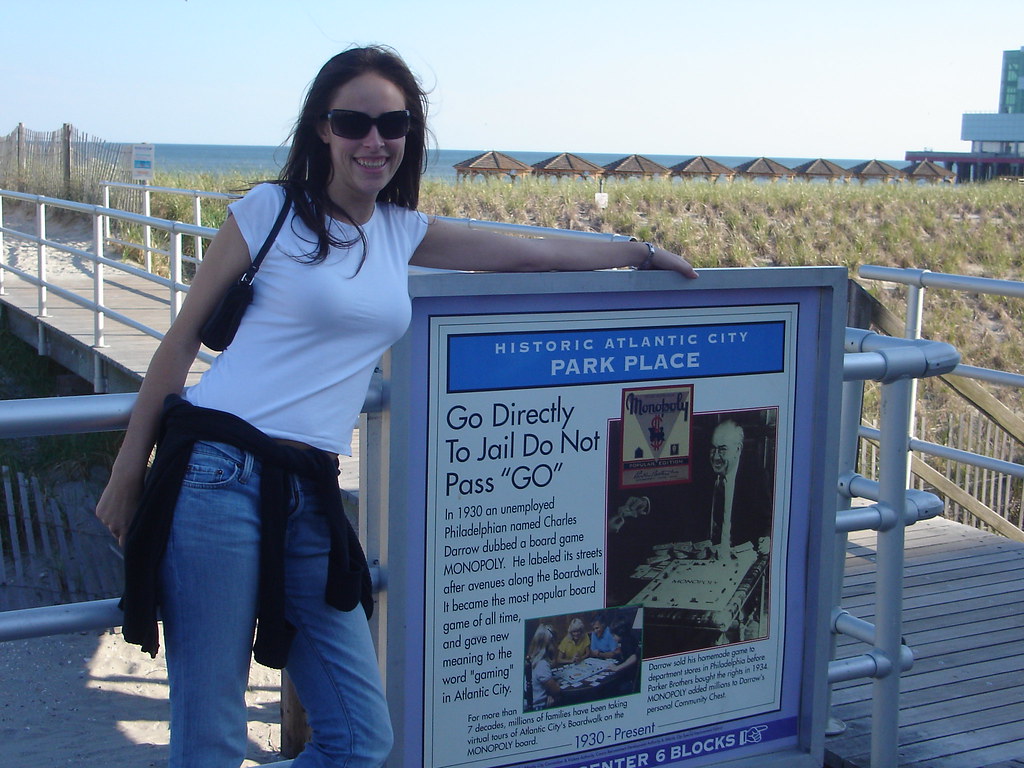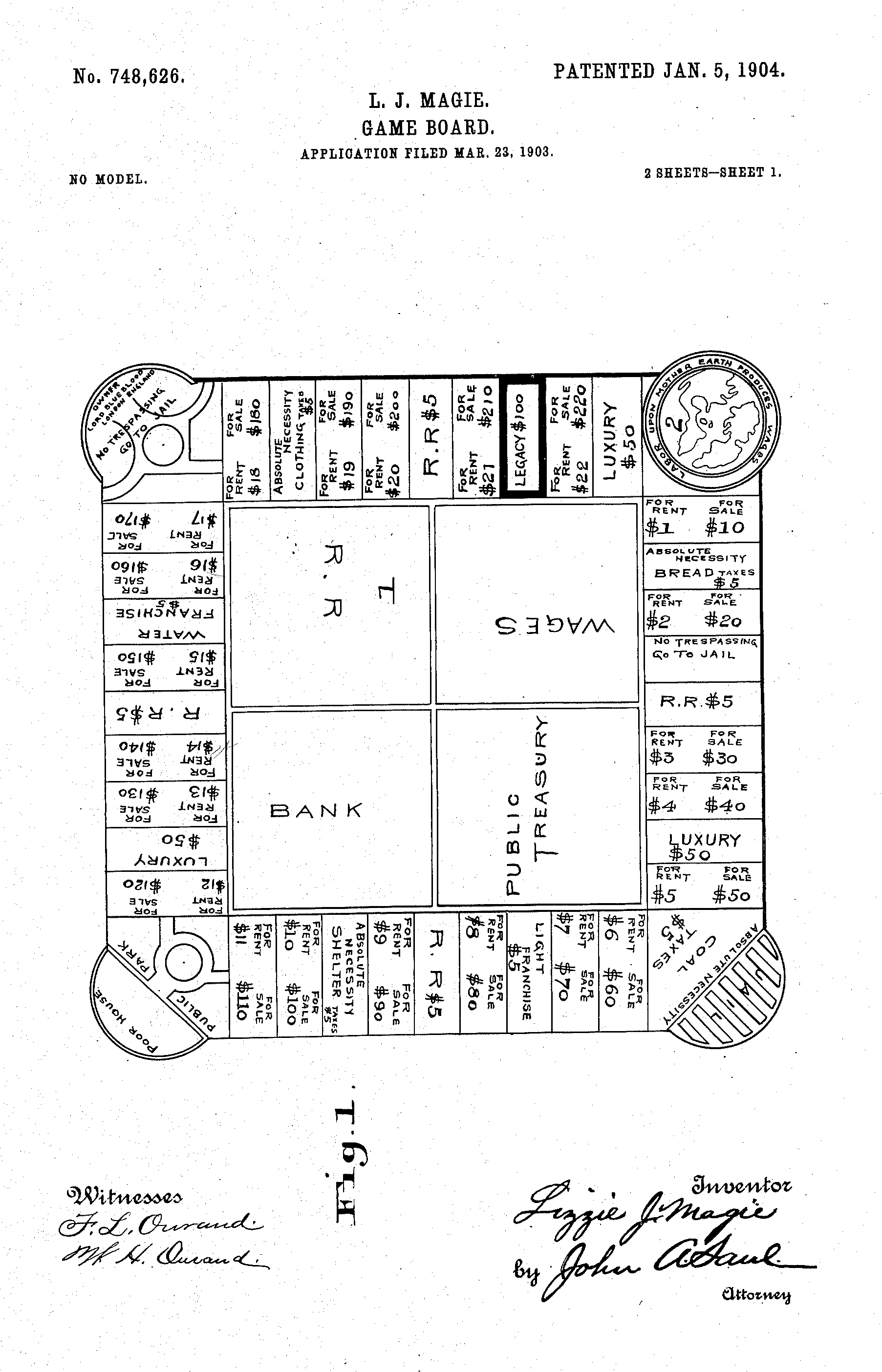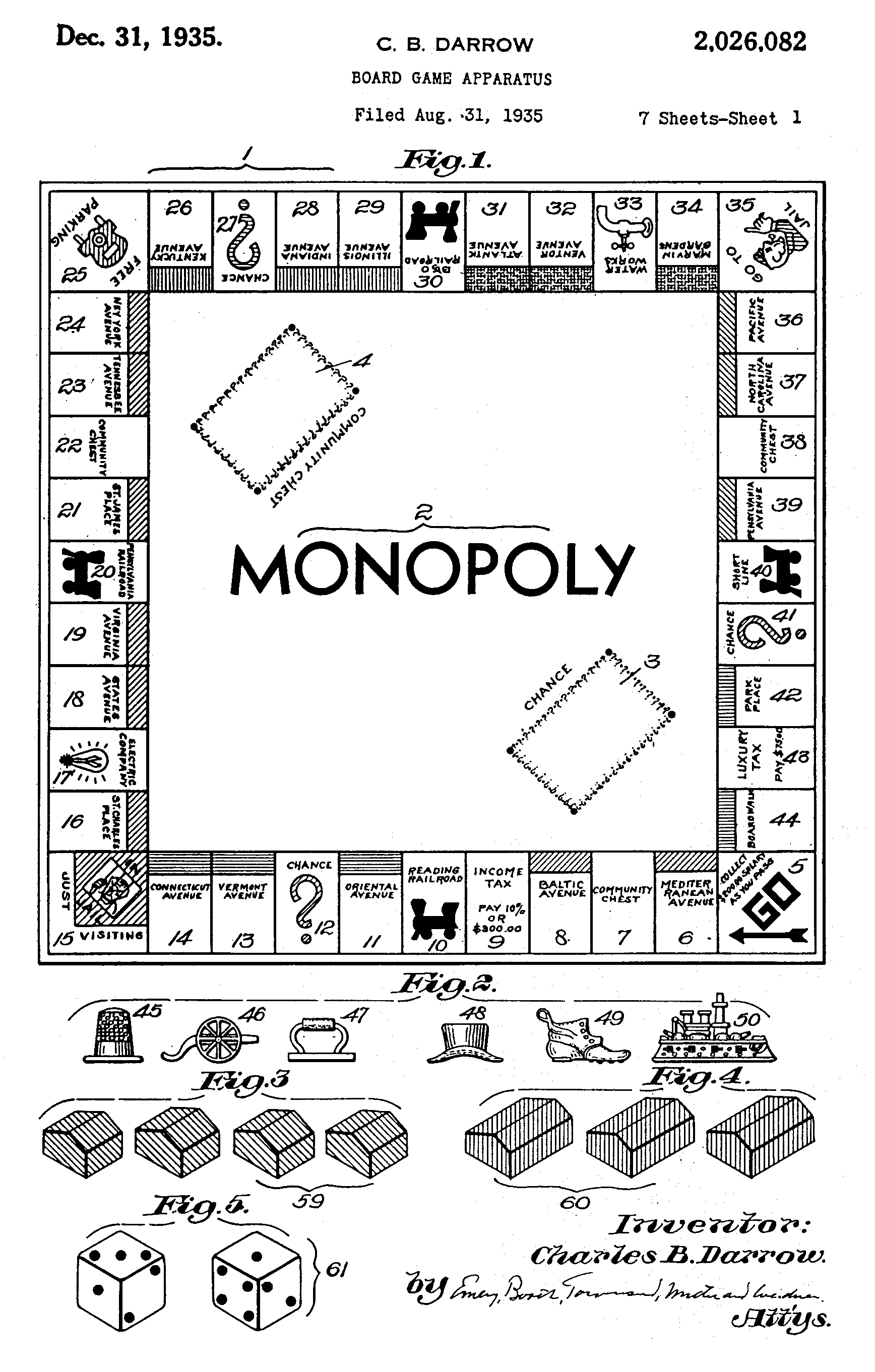 |
| Goofing with Monopoly signs in Atlantic City Creative Commons image shoshanah on Flickr |
"Headlines from Atlantic City today read like they might be pulled from Monopoly, the most famous board game ever made about Atlantic City, or any other city. "Atlantic City Allowed to Collect Up to $30 Million Unpaid Revel Property Taxes," reads one from The Wall Street Journal. It's a bank judgment in the city's favor, practically a card drawn at random from the Chance deck. "Economist: Atlantic County Job Losses Among Worst in Nation," reads another story, about how the city is suffering the worst single-year contractions in employment in recent national history. Do not pass Go, do not collect $200..." [The Avenues of Monopoly, Captured in Pictures].
Here are a few other interesting Monopoly stories I found along the way:
 |
| A Monopoly "spinner" used in WWII when dice were unavailable |
The Germans believed that the games kept their POWs from planning to escape by providing them with amusement. Ironically, many of the packages’ Monopoly games were designed by their U.K. manufacturer to have the opposite effect entirely, and, in fact, secretly doubled as escape kits. The plan involved having fake charities deliver aid packages containing these games, which, in truth, contained various escape tools, including “playing pieces” that were actually compasses or metal files that could be used to cut through barbed wire.
Even the games’ “play money” was actually real French, German, and Italian money that could be used for food, bribes, or train tickets. Hidden within their boards, the games also had silk maps that prisoners could use to travel to safety after leaving their prison camps. The manufacturer made the maps with silk so that they would neither deteriorate in water nor rustle when POWs unfolded them, thus not alerting German guards..." [read more].
 |
| Elizabeth Magie's 1904 Patent US1509312A |
A young woman by the name of Elizabeth Magie created the game to show a “practical demonstration of the present system of land-grabbing with all its usual outcomes and consequences.” She was inspired after reading Henry George’s book, Progress and Poverty. The first version of the game was called The Landlord’s Game..." [read more].
If that's news to you, it's probably because Charles Brace Darrow was best known as the claimed inventor of the Monopoly board game (he went on to become the first millionaire game-designer in history.
In fact, however, Elizabeth Magie was the original Monopoly inventor, and Darrow's version was derivative.
About the photographer
The Avenues of Monopoly, Captured in Pictures - CityLab
Mike Osborne: Monopoly - Holly Johnson Gallery, Dallas
The Monopoly Project - on the photographer's website
Mike Osborne Photography - the photographer's website
 |
| Charles Darrow's 1935 Patent
US2026082A
(read more) |
76-Second Travel Show: Monopoly Travel - Lonely Planet
The Search for Marvin Gardens (1972) - The New Yorker
How Allied Prisoners Used ‘Monopoly’ To Escape Nazi POW Camps - All That's Interesting
This Is What the First-Ever Monopoly Game Looked Like - Reader's Digest
Monopoly’s Inventor: The Progressive Who Didn’t Pass ‘Go’
Monopoly House Rules - WikiBooks
Hasbro Monopoly Game - official website
List of Monopoly Games - Wikia
20 Monopoly Games You Never Knew Existed - All That's Interesting
Thinking of visiting Atlantic City?
76-Second Travel Show: Monopoly Travel - Lonely Planet
What's New in Atlantic City for 2018 - Martz Railways
24 Hours in Atlantic City - Traveling Greenes
Atlantic City Stemming is Losses - Globe and Mail
Atlantic City was once a bustling tourist hub — here's how it has changed

No comments:
Post a Comment